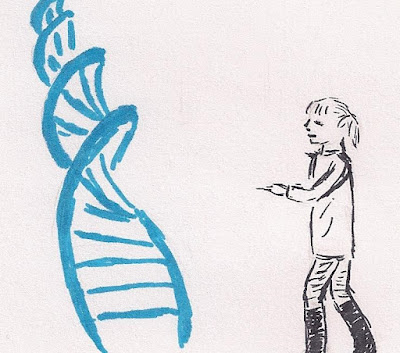The BCGS library in Surrey, BC
I've been at it again, trawling through LDS films old style. We met for another day long session at the BCGS library to do research together. Well, maybe not together, as we're not all researching the same things but researching at the same time in the same room. This time I was scrolling through a digitized microfilm of Ontario church records for Puslinch. I was looking for baptisms of Clark children.
When trying to figure out the family of Angus Clark and his wife, Margaret McPherson, it had seemed that they'd had a least 16 children together. At least that was how it appeared when I checked the 1861 and 1871 census records. That was until I looked up Ellen Clark, the oldest child, to see if I could find her in the 1851 census. There they were in Puslinch, Angus Clark with his children, Ellen, Mary, Catherine, John and Angus but there was no mother as Angus was a widower. That changed things.
To find out more I was looking for the baptisms of all the Clark children, both the first wife's and those of Margaret McPherson, the second wife. The hope was that those records would show more than when each child was baptized. I wanted to find out the first wife's name and see when Margaret McPherson had come into the picture. That would give me a better idea of when the second marriage took place.
The records started in 1835. Perfect, the first child, Ellen, was 12 in 1851. According to my math, she would have been born about 1839. I scoured the images for the '30s - nothing. Knowing there were children born later I carried on. There were baptisms of Clark children listed in the 1850's, but not to the right parents. I continued on.
Morning had turned into afternoon and I was getting discouraged. None of the Clark children that I'd noted down were for the right couple. I paused a few times. Went downstairs to look for a book. Then talked myself into continuing on further. Then there was the entry I'd been looking for:
Sources:
LDS film
8130297 Ontario church records available on FamilySearch at affiliate centres




.jpg)